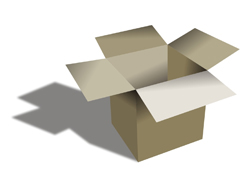 One factor that makes the internet such a powerful information tool is its open nature.
One factor that makes the internet such a powerful information tool is its open nature.
An ‘open’ internet can have a number of meanings.
One meaning can refer to how web developers leverage open source code to promote new products and services. It can also refer to the internet being open to all users in an equal fashion, without the sway of large cable and telecoms companies.
One question that could come up in this discussion is “why can’t all published work on the internet also be open, allowing the information to be disseminated without attribution?”
Although this seems like a beneficial situation, it actually would be very problematic.
I’d like to take this opportunity to discuss the problems associated with allowing the open plagiarism of other people’s work. In other words: What would a world be like where plagiarism was allowed?
Most authors and content creators would not publish their work.
Imagine spending a long period of time writing something completely unique, only to have the work attributed to someone else. Even if making a living is not in question, a writer’s identity involves maintaining their published work as their own. Most writers would be extremely hesitant to publish their work with the knowledge that their content would immediately be susceptible to plagiarism with no repercussions whatsoever.
Competition among publishing businesses would vanish.
Much of the quality in publishing exists because of competition. The New York Times hires skilled writers to produce great work, and to distinguish their product from others in the publishing business. If internet plagiarism went unchecked, organizations like the New York Times would be left without the motivation to publish innovative and exciting new content.
The quality of published work would suffer.
Even if a writer did end publishing their work, the quality would most likely suffer with the knowledge that it would not be their own. Why try to create something unique and interesting when it’s a free-for-all afterwords? Quantity would most likely become the primary goal of many writers, who would benefit not from producing something unique but from creating relevant content on a consistent basis.
Innovation would have no reward.
In a world that allowed plagiarism, the innovators who created new works would not be rewarded. The people that could best ‘promote’ someone else’s work would end up gaining the most. Essentially, it would be a popularity contest to see who could get the most out of a plagiarized piece of content.
For reasons like these, it makes sense that we have rules and regulations that prevent plagiarism from happening.
Although the internet is making the act of stealing other people’s work easier, it also provides us with a new line of defense against plagiarism. Cutting-edge plagiarism software like iThenticates’ is constantly evolving to prevent plagiarism from occurring.
Hopefully, as technology like this continues to progress, a future will exist where plagiarism is nearly non-existent.
Related
Topics: Technology